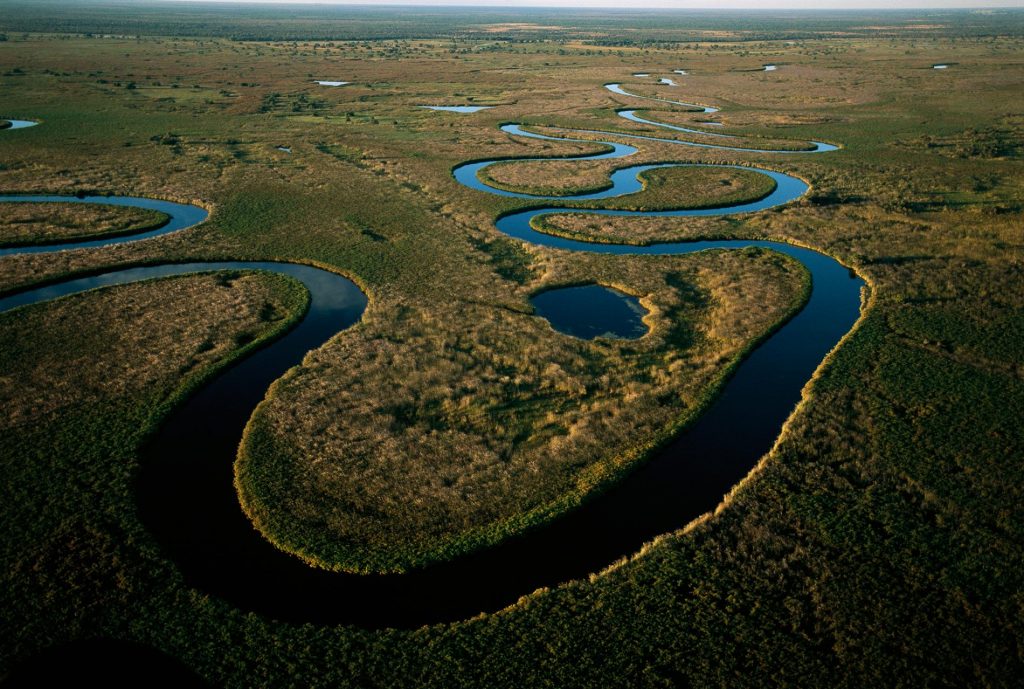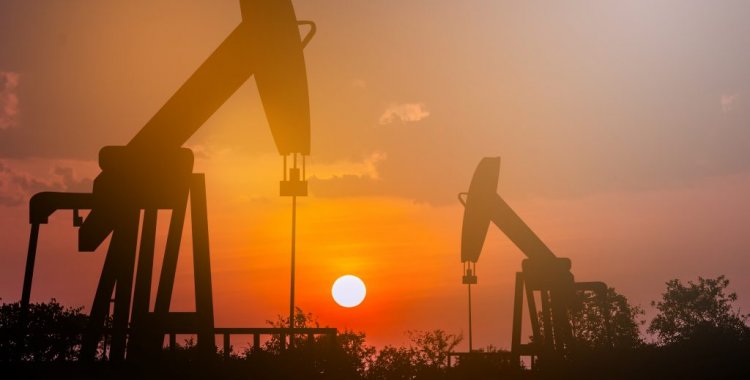Africa’s second largest oil producer has a problem, and it’s one that is uncommon in a region beset with many challenges.
Conflict, poverty, and recently the ravages of the COVID-19 pandemic have straddled borders and impacted the lives of hundreds of millions of Africans. But in Angola another problem is as much troublesome — and in the future could be more — that of environmental degradation.
For all the skyscrapers in the capital Luanda financed by oil wealth, you can count the number of species that have become extinct; for the huge rise in high per capita income now ranking among the top in the continent, consider the diminishing wildlife protected zones.
Worryingly, the government’s latest actions seem to plough into the last breaths of environmental protected zones in a country twice the size of France.
Lawmakers have revoked a ban on exploration for crude and natural gas in protected natural reserves, including the Kassanje Basin and the wildlife-rich Okavango River Basin.
Mineral Resources Minister Diamantino Azevedo said, “Prospecting will be allowed in 5% of protected zones and “possibly” only 3% will be drilled.
Comparison
In justifying the moves, he cited other countries like the U.S., Gabon, and Norway, as examples of countries exploring for oil in protected zones, even though the contexts in each country are much different.
Driven by a leader who did not believe in climate change and pulled the U.S. out of the 2015 Paris Climate Accord, former President Trump’s administration allowed for oil exploration in protected zones in Alaska, moves that the current President Biden has signaled he will reverse.
As for Norway, the government’s decision to allow for exploration in the Arctic was accompanied by a myriad of conditions included in the licenses awarded to the drilling firms.
Gabon is a world leader in terrestrial conservation with a network of protected areas covering more than 10% of the country. Oil exploration and biodiversity conservation currently co-exist in terrestrial and freshwater ecosystems in Gabon. As such the government used the oil platforms as a means to increase marine protection by including them in the marine protected area design process.
According to the American-based National Center for Biotechnology Information, oil platforms may act as stepping stones, increasing regional biodiversity and production but they may also be vectors for invasive species.
Environmentalists push back
For years, environmental activists such as Eufrazina Paiva have campaigned for more government protection of natural reserves. These moves, she says, “May breach international agreements because Angola receives donor funding to protect the sites.”
Angola’s state secretary for social communication, Nuno Caldas Albino, has dismissed those concerns saying the country will respect its commitments to protect habitats.
But the environmental activist have no faith. They are pleading with President Joao Lourenco not to sign the change into law. However, there are few who think the president will make a 360 degree turnaround considering that he was the one who proposed the amendment.
The National Agency for Petroleum, Gas and Biofuels on February 10 opened a “limited” public tender for a domestic company to carry out studies on the environmental impact, restoration and restocking of the eastern and western parts of the Etosha and Okavango Basin.
Angola’s economy is also struggling making many wonder if more oil exploration is actually needed. A sharp drop in crude prices last year, stemming from the pandemic, forced Angola to seek debt relief worth $6.2 billion from three key creditors, easing fears of default in one of Africa’s most indebted countries.

In January, the oil producing country became the latest African nation to receive funds from the International Monetary Fund after the Washington-based lender approved disbursement of $488 million.
In allocating the funds, IMF reiterated confidence that Africa’s second-biggest oil producer will rein in public debt to sustainable levels.
The oil-producing nation secured a temporary waiver of $1.78 billion in bilateral debt-service payments from the G20.
Flailing tourism sector
Angola’s economy relies heavily on oil and to a lesser extent, diamonds. Even though global crude prices have fallen in the years preceding the pandemic, the sector contributed to 50% of national gross domestic product and 80% of government revenues in 2020. The government is seeking to boost production to add to the 1.37 million barrels of oil per day (bpd) and an estimated 17,904.5 million cubic feet of natural gas produced in 2019.
In 2019, World Data estimates that Angola recorded a total of 218,000 tourists, ranking 174th in the world in absolute terms.
Without including the size of a country, such a ranking list may not be very meaningful. By putting the tourist numbers in relation to the population of Angola, the result is much more comparable picture: With 0.0068 tourists per resident, Angola ranked 196th in the world. In Central Africa, it ranked 6th.
Angola generated around $395 million in the tourism sector alone. This corresponds to a meager 0.44% of it’s the gross domestic product and approximately 37% of all international tourism receipts in Central Africa, a low figure considering most countries in the region are beset with war and conflict.
Angola has also never relied on tourism and that explains the little urge by the government to protect natural zones that have close to zero contribution to its revenues.

